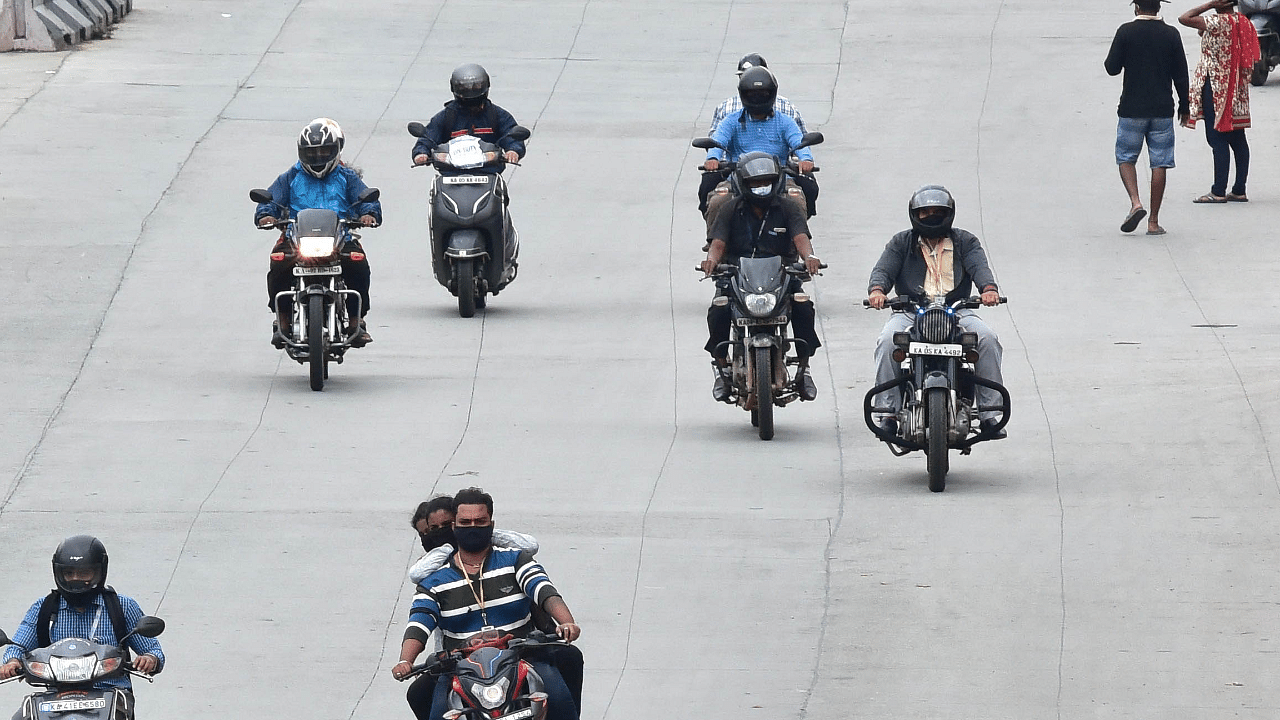
Hours after the state government announced a scheme to allow electric bike taxis on Wednesday, experts cautioned that regular monitoring and evaluation were important to assess the benefits of bike taxis to Bengaluru’s mobility ecosystem.
Transport department officials have been wary of bike taxis, fearing they may hit the revenue of public transport, especially the BMTC's city bus services.
"Especially in cases where the route is parallel, bike taxis will easily be preferred than buses. The commissioner will now have to identify the routes, including metro corridors, to prevent the operation on same routes,” an official said.
Aravind Sanka, co-founder of aggregator Rapido, said such fears were misplaced. “A bike taxi passenger pays Rs 9 per km, double the fare in buses. Bike taxis will complement the public transport by bridging first- and last-mile gap of metro and bus services on major trunk routes,” he said.
He added that Covid-19 has discouraged many people from using public transport and bike taxis will give them an affordable solution. "At the same time, the first- and last-mile connectivity has become costlier. Bike taxis will reduce the burden of passengers,” he added.
Ashish Verma, Associate Professor of Transportation Systems Engineering at IISc, said there was no alternative solution to urban mobility other than public transport. "How far bike taxis will help public transport is dependent on how well the government monitors them. Rigorous monitoring as well as continuous assessment should yield good quality data on their impact to metro and buses, which should inform future decision-making,” he added.
He, however, noted that allowing competition in the bike taxi sector on the crowded roads of Karnataka where two-wheelers constitute 72% of the 2.5 crore registered vehicles. "Two-wheelers and pedestrians together account for nearly 90 per cent of fatal accidents in Bengaluru. Among these, two-wheelers are involved in most of the pedestrian accidents,” he added.
Urban transport activist Sanjeev Dyamannavar expressed concerns over driver behaviour.
"It is one thing to make announcements and quite another to implement them. From ensuring that bike taxis are not competing with metro or buses to drivers are fit and not drunk, officials have a lot to do,” he said.
Rapido’s Sanka acknowledged the challenge but said it was left to the operators to watch the riders and ensure corrective measures. “Monitoring the ride speed, breaking and sharp turns will help in taking corrective measures, which is a continuous process,” he said.